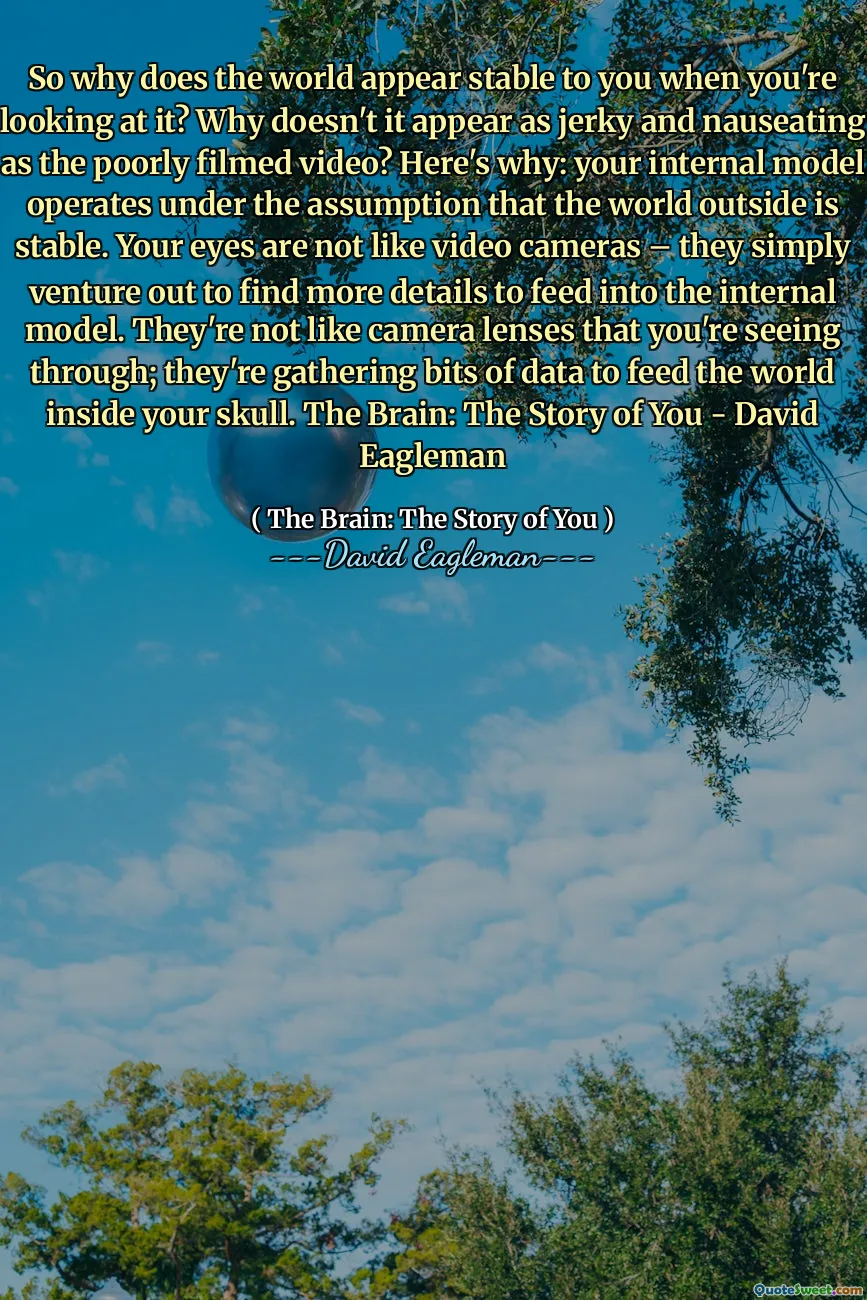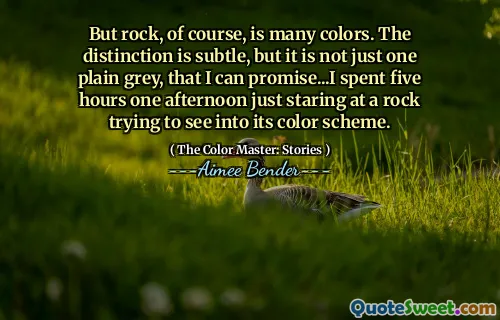
So why does the world appear stable to you when you're looking at it? Why doesn't it appear as jerky and nauseating as the poorly filmed video? Here's why: your internal model operates under the assumption that the world outside is stable. Your eyes are not like video cameras – they simply venture out to find more details to feed into the internal model. They're not like camera lenses that you're seeing through; they're gathering bits of data to feed the world inside your skull. The Brain: The Story of You - David Eagleman
This quote offers a fascinating insight into the way our perception of reality works. Despite the constant barrage of visual information our eyes take in, our brain constructs a surprisingly stable and coherent experience of the world. It mimics how a skilled editor or a high-quality stream filters out extraneous noise, helping us ignore the chaos and focus on what matters. This stability is, in essence, a product of our brain’s predictive internal model, which assumes the external environment remains constant unless evidence suggests otherwise. The analogy comparing our eyes to data gatherers rather than fixed cameras illustrates that our visual system is constantly sampling and updating information, yet our consciousness perceives a smooth, uninterrupted scene. It’s worth considering how much of what we see is a constructed illusion—our brain fills in gaps, smooths out inconsistencies, and predicts future states to offer us a seamless experience. This understanding might influence how we approach the world around us, making us more aware of the subjective nature of perception: what we see is not necessarily an objective reality but a brain-generated interpretation. Such awareness can foster humility and curiosity about the processes behind our everyday experiences, revealing that our sense of stability and knowledge is, in many ways, a carefully crafted story told by our mind. Recognizing this can deepen our appreciation for the complexity of perception and challenge us to stay open-minded about our understanding of reality.



